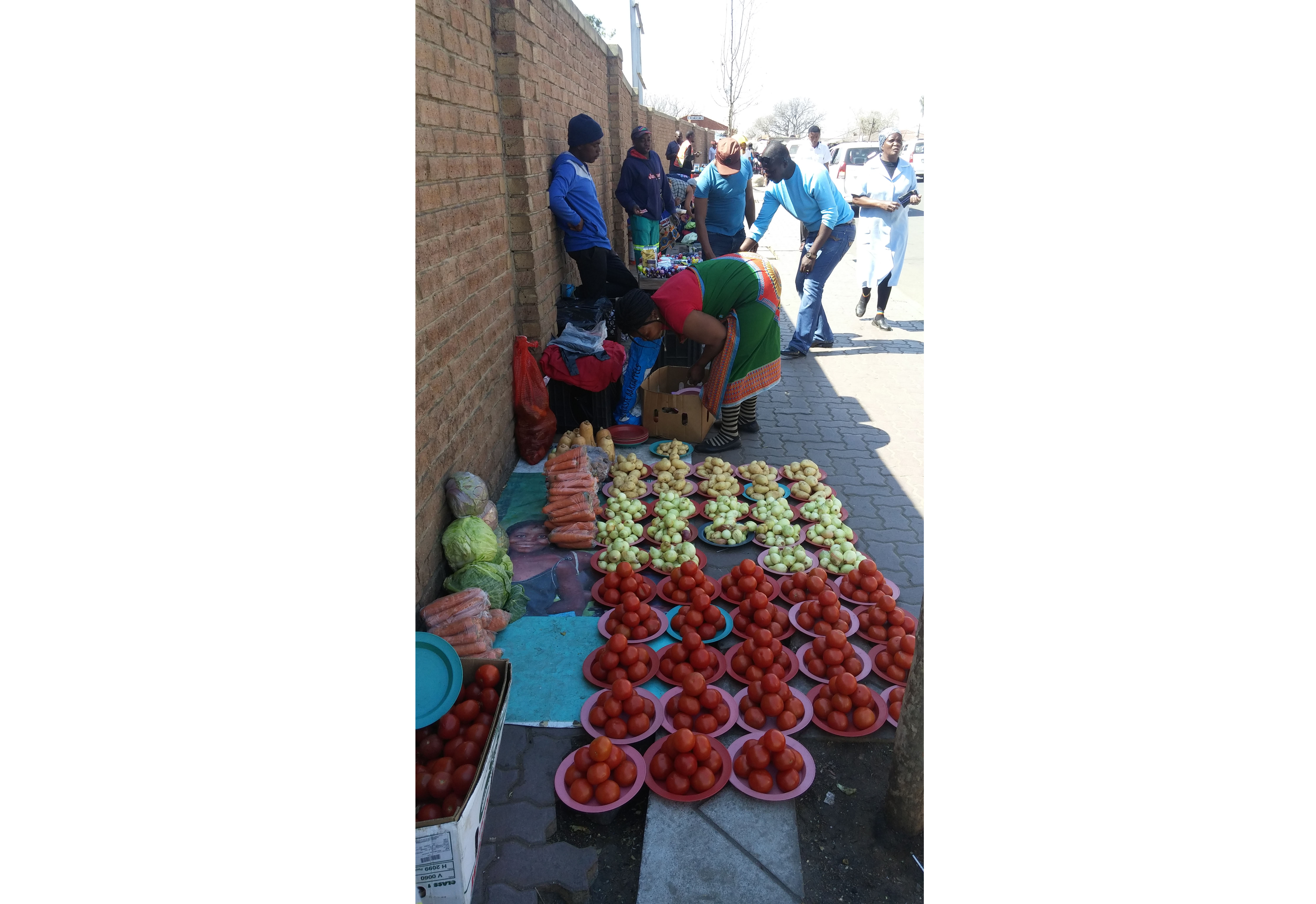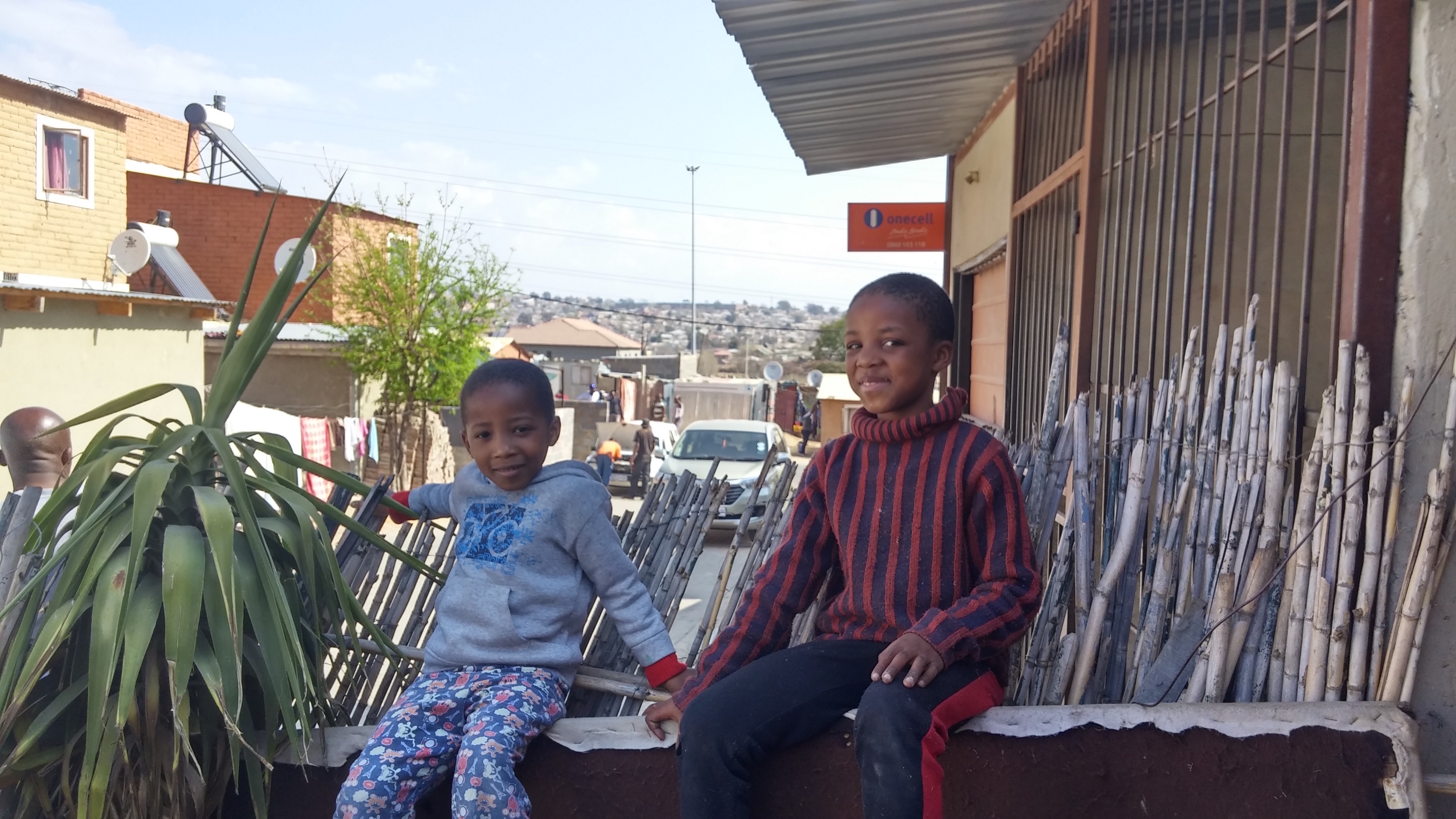
On a weekday afternoon, there's no smoke rising from the grills of the food stalls normally found in a dirt clearing at the edge of Alexandra Township. In fact, there are no grills at all, except a few being loaded into an orange and white police van, the vehicle at the back of a convoy dispatched from the Johannesburg Metropolitan Police Department to clean up the area. As their belongings are taken away, a few vendors linger casually. A nearby taxi driver mentions they'll only have to bribe the police in order to get the equipment back.
The routine raid is an illustration of the tense relationship that exists between the government and the informal economy in Alexandra (or Alex), one that's replicated in townships and neighborhoods across South Africa. Residents who have difficulty finding regular employment often work as street traders, sometimes operating illegally, or scrap metal collectors. And while they often face fines, harassment, or even police arrest, some people think that their particular brand of entrepreneurship, if supported by the state, will ultimately help to lift the township out of poverty.
"Every street corner there's a spaza shop. Every street corner, there's a hawker selling apples and bananas. There's a huge community, there's a huge activity there," says Trinity Mohlamme, who grew up in Alex resident and used to manage AlexFM, the local radio station. He added, "Right now, you find people selling stuff on street pavements, and the police they will come in and confiscate people's stock. People are trying to better their lives. I'm saying regulate it."
Gabriel Mlangeni is a Mozambican street vendor who hawks everything from lottery tickets to lollipops outside the Pan Africa Shopping Centre, the township's mall that was built in 2009 as part of the Alexandra Renewal Project. Its 60 stores have provided Alex's inhabitants with a place to shop that didn't exist before, but it is the outdoor market that residents say make up the heart of the township. It stretches around the periphery of the mall, spilling over to adjacent roads and fills the streets with crowds milling around each of the stalls, with goods ranging in kind from fruits to textiles. Each business has half a dozen different competitors; one hairdresser says she is one of 15 in the area.
Mlangeni runs two different stalls—he keeps one in a less favorable location because his better-placed one is more likely to be raided by the police. He came to Alex 17 years ago. He lives in a shack with his brother and has been an informal trader ever since, taking in around 600 rand, or about US$40, every day. Richard Selota, a local businessman who lost a bid for city council in August's elections, says that it is exactly people like Mlangeni whom the city should be helping: "Alex is the hub of Africa in terms of influx. You need to develop their business skills.... Then you can uplift people economically."
But even the most basic support can sometimes be hard to obtain. Two women with a small roadside stand in the East Bank—the wealthier, less dense part of Alexandra—say that they normally have more to fear from common criminals than from the police. Business, however, remains slow: They are ecstatic when a group of workers just off a shift buy a dozen hard-boiled eggs and a bag of skopas, a sweet, chewy snack that looks sort of like jaundiced popcorn. The sale nets them around 15 rand, or a bit more than a dollar. They say business might be better if they could set up a stall, but that, despite their attempts, government aid has not been forthcoming. "We've been filling out forms for the past couple of years that we've been selling. They've been promising to give us a stall. Our aim is to expand the shop," one says. "But so far, it's just empty promises."
Still, even if informal traders never gain a greater measure of support from the municipal government, they remain a permanent part of Alexandra's landscape. The morning after the previous day's raid, smoke once again wafts toward the road from the little dirt clearing on the edge of Alexandra—unabashed, vendors have retaken their place in hastily reassembled stalls.



